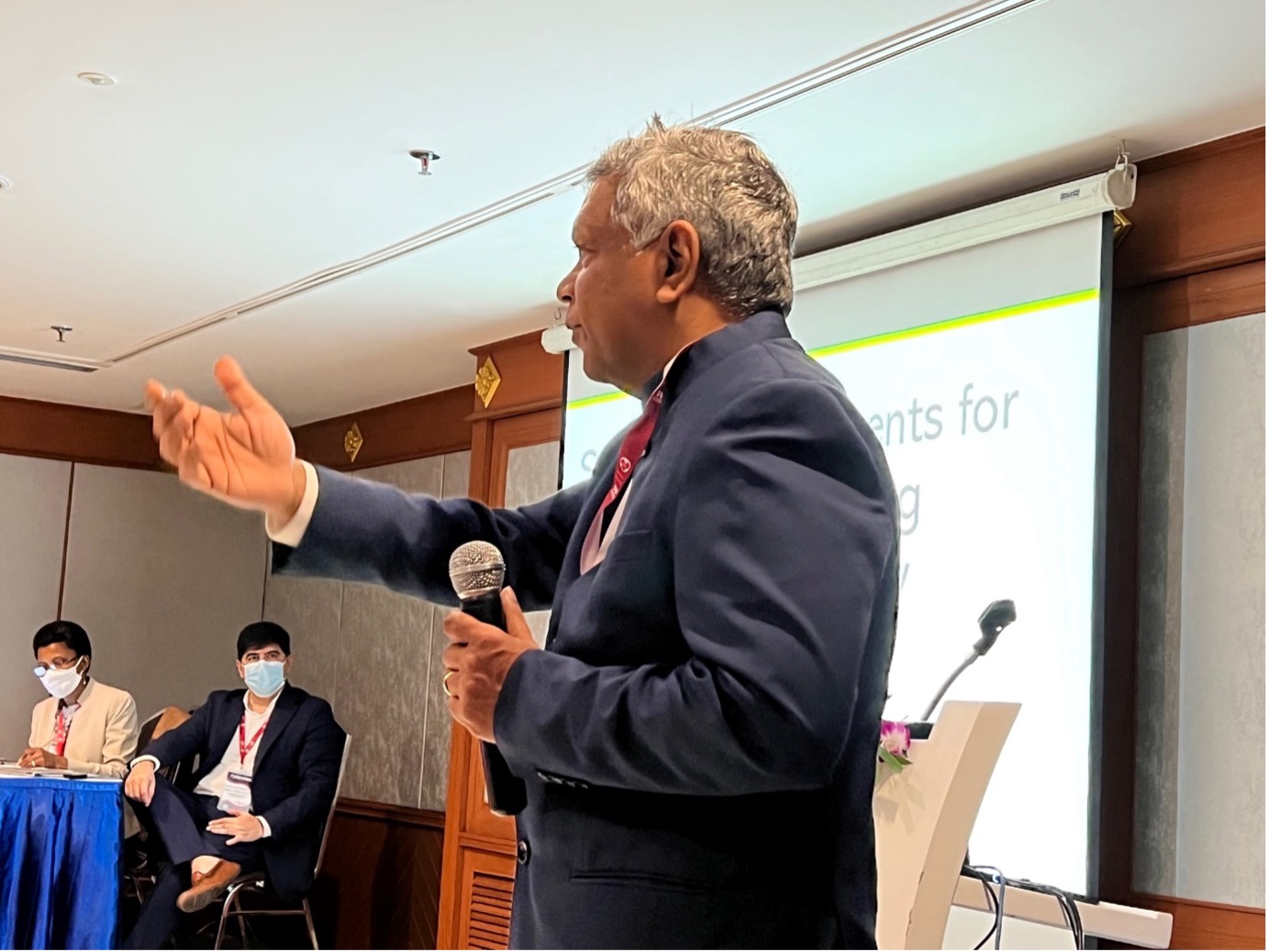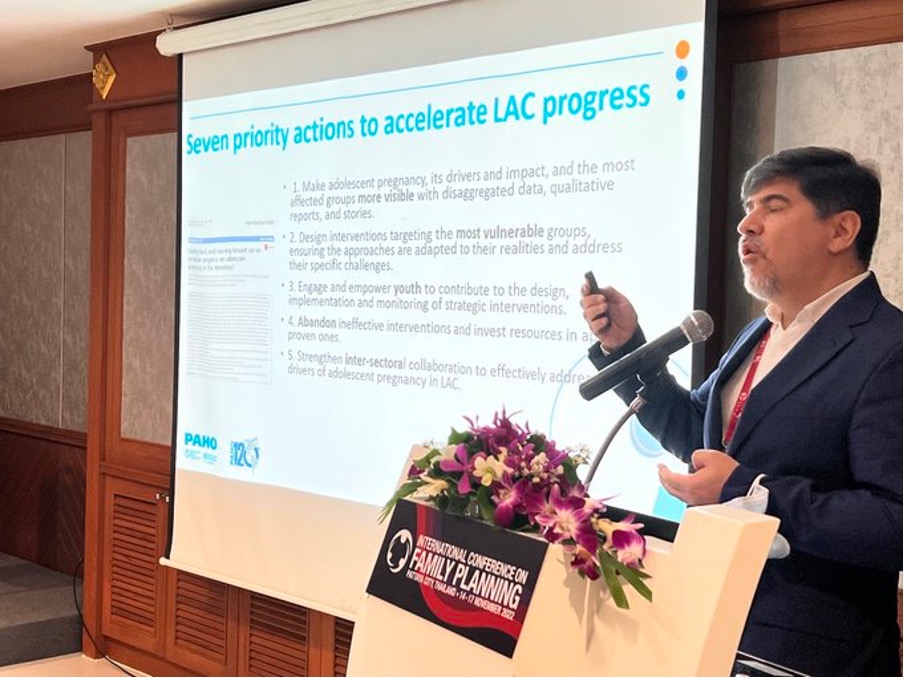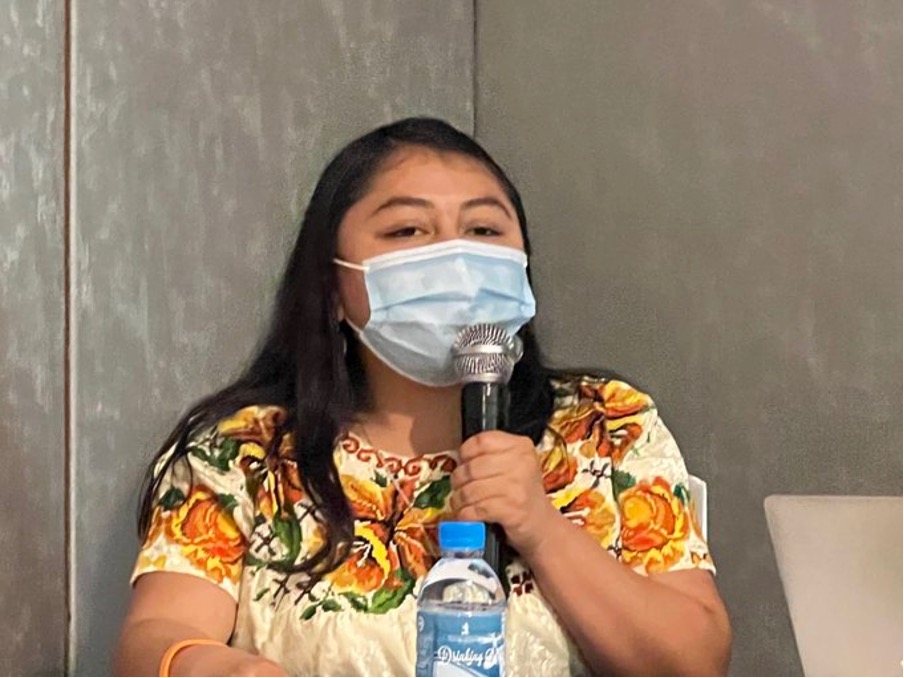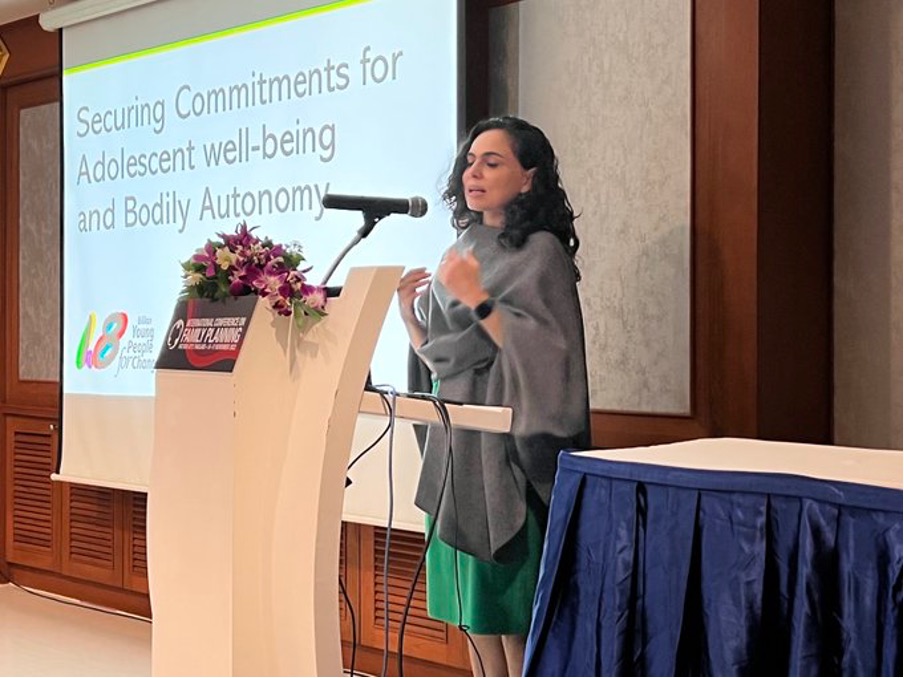"We need to go beyond commitments and make change happen" was the sentiment that picked up momentum at a session hosted by PMNCH on Securing Commitments for Adolescent Wellbeing and Bodily Autonomy at the International Conference of Family Planning in Pattaya, Thailand, on 15 November.

The session – which focussed on Latin America and the Caribbean (LAC), was a sequel to September’s Accountability Breakfast and acted as a precursor to PMNCH’s Global Forum for Adolescents in October 2023 – brought partners together to discuss the state of adolescent sexual and reproductive health and rights (SRHR). It involved short presentations from a variety of speakers who drove home the need to advance adolescent access to SRHR services and support teenage bodily autonomy but stressed that the urgency of the situation means advocates cannot wait for a demonstration of political will to act.
"Push the political leaders but don’t wait for them, we have to soldier on. As advocates, we have to move," said Dr Chandra-Mouli Venkatraman, who works on the human reproductive health program at the World Health Organization.
As it stands, LAC is the region with the second highest adolescent birth rate after sub-Saharan Africa.
Teenage pregnancy comes with, according to research, higher risks of complications – such as eclampsia, puerperal endometritis and systemic infections – and of mortality during pregnancy and birth. There are ramifications that far outlast the duration of the pregnancy, said Dr Rodolfo Gomez, regional SRH advisor at Pan American Health Organization. “Their life course could be, and is, changed,” he said. It can affect the likelihood of a teenager completing their schooling, which in turn limits job opportunities and their earning potential.
"Staying at school for one year more is 10% of the salary increased when they start working," Gomez said.
Having improved access to information and services around contraception could help to remedy this.
Target 3.7 of the Sustainable Development Goals pushes for "universal access to sexual and reproductive health-care services, including for family planning, information and education, and the integration of reproductive health into national strategies and programmes" by 2030.
While some countries in the region are making significant progress on this, including Chile, others such as Honduras, Guatemala and the Dominican Republic, said Gomez are holding the region back.

Seven actions can address the challenge: making the issue visible along with the drivers and impact through data, reports and stories; designing interventions that target the most vulnerable; abandoning ineffective actions; strengthening intersectoral collaboration; transitioning from boutique projects to large scale initiatives; engaging youth to be part of solutions; and creating an enabling environment.

As it stands, accessibility and inclusion within the discussion remains a big challenge for young people, said Gilda Paulina MenchuTzun, a 21- year old youth representative from Guatemala, despite the message being that family planning is for all. Young people, she said, are "tired of adult-centric spaces and of adults not wanting to give them space for participation and decision-making."

Maria Antonieta Alcalde Castro, director of Ipas Central America and Mexico, said the onus is on the global community to understand the reality of adolescents. "There is very little data when it comes to younger adolescent and child pregnancy," she said, adding that increased information needs to lead to policies that are specific to this age group.
For example, she cited a known relationship between gender-based violence and teenage pregnancy. Having this context opens up a discussion around the need to better link family planning approaches with sexual violence, she explained.

.png?sfvrsn=6d0e27cd_1)



